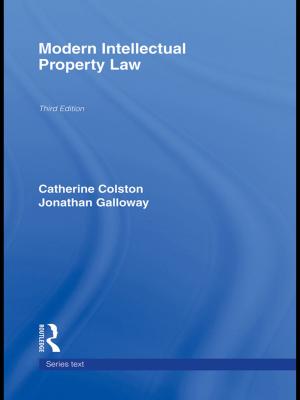Governance and the Democratic Deficit
Assessing the Democratic Legitimacy of Governance Practices
Nonfiction, Social & Cultural Studies, Political Science, Government, Public Affairs & Administration| Author: | Victor Bekkers, Geske Dijkstra, Menno Fenger | ISBN: | 9781317125976 |
| Publisher: | Taylor and Francis | Publication: | April 22, 2016 |
| Imprint: | Routledge | Language: | English |
| Author: | Victor Bekkers, Geske Dijkstra, Menno Fenger |
| ISBN: | 9781317125976 |
| Publisher: | Taylor and Francis |
| Publication: | April 22, 2016 |
| Imprint: | Routledge |
| Language: | English |
It is widely acknowledged that we are witnessing a major transformation of public policy making, a transformation which has been labelled as a change from 'government' to 'governance'. Governance is used to describe policy making and implementation without a central authority in a non-hierarchical, network-like structure through negotiation and cooperation between public and private actors at one or across different political levels. This comprehensive volume combines empirical analysis and normative assessment of governance practices, providing a systematic approach based on a framework for assessing democratic legitimacy. It addresses different modes of governance at the local/regional, national, European and international levels. The volume assesses the alleged 'democratic deficit' of these new governance practices and as such is ideally suited to courses on public administration.
It is widely acknowledged that we are witnessing a major transformation of public policy making, a transformation which has been labelled as a change from 'government' to 'governance'. Governance is used to describe policy making and implementation without a central authority in a non-hierarchical, network-like structure through negotiation and cooperation between public and private actors at one or across different political levels. This comprehensive volume combines empirical analysis and normative assessment of governance practices, providing a systematic approach based on a framework for assessing democratic legitimacy. It addresses different modes of governance at the local/regional, national, European and international levels. The volume assesses the alleged 'democratic deficit' of these new governance practices and as such is ideally suited to courses on public administration.















